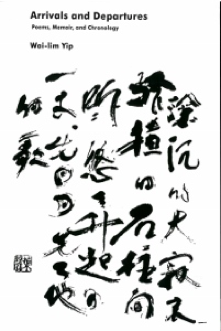Nick Admussen’s translation of Floral Mutter 花的低语, by Ya Shi 哑石, is now out from Zephyr and Chinese University Presses, and to announce the publication the Cornell Chronicle has published an article under the headline “Translation opens a thriving world of Chinese poetry“, by Kate Blackwood. She writes:
Now, Ya Shi – a pen name meaning “mute stone” – teaches university-level mathematics in his home province, Sichuan, but he is also an award-winning poet. Nick Admussen, associate professor of Asian studies in the College of Arts and Sciences, has translated into English selections of Ya Shi’s poetry in the newly published “Floral Mutter.” Admussen’s research and teaching center around contemporary Chinese literature, and he is also a published poet.
For English readers, the book is an introduction to this unique poetic voice and a glimpse into Sichuan’s vibrant poetry scene.
“The arrangement of Ya Shi’s work in this volume is a tiny fraction of his writing, intended to foreground his intellectual restlessness and independence,” Admussen wrote in the introduction. “I have seen no other contemporary poet think so deeply and patiently about the intellectual uses of wild space in China today.”
The article ends with Admussen quoted as saying:
“If you want to have interesting and exciting poetry, you need to be moving between cultural traditions,” he said. “It’s true in music, it’s true in fiction. It’s true in all the other arts, too.”
Click on the link above to read the article in full.










